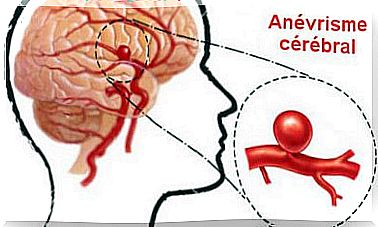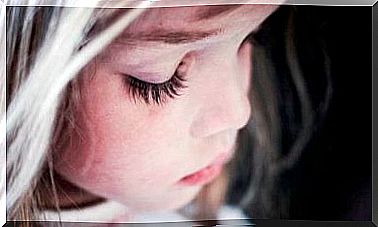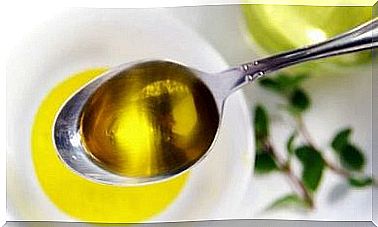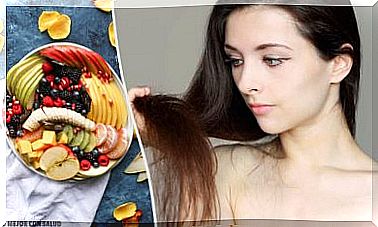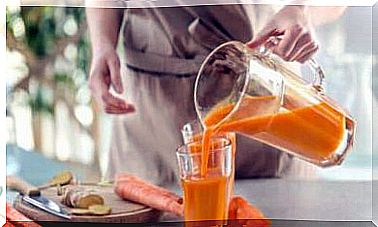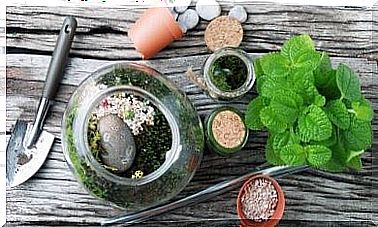Rosacea Attacks: 6 Things You Should Avoid
Rosacea attacks can be caused by contact with an irritant in a beauty product. On the other hand, stress is another factor that can promote these crises. Find out here what to avoid if you have rosacea.
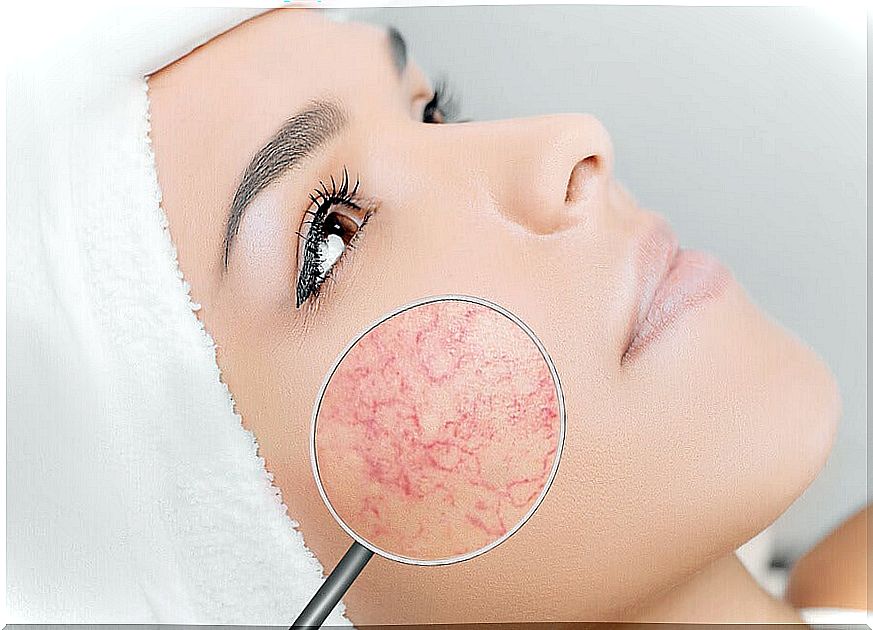
Rosacea is a skin disease characterized by redness in the face: the blood vessels in the face become visible. This disease can also cause small red bumps to appear, which in some cases contain pus.
Rosacea can affect anyone, but it more commonly affects middle-aged white women. This disease can peak for a period of several weeks or even months, and then subside for a time.
It sometimes happens that this disease is confused with acne, with an allergic reaction or with other skin problems. How to avoid rosacea attacks? Find out what changes you can make here.
6 things to avoid to avoid rosacea attacks
If you are suffering from rosacea, then you have probably noticed that certain products irritate and worsen the condition of your skin. Even products “suitable for sensitive skin” can cause reactions.
Of course, each skin reacts differently to an ingredient. Nonetheless, if you avoid the six things listed below, this skin problem should not get worse. Find out what are the 6 things to avoid when suffering from rosacea!
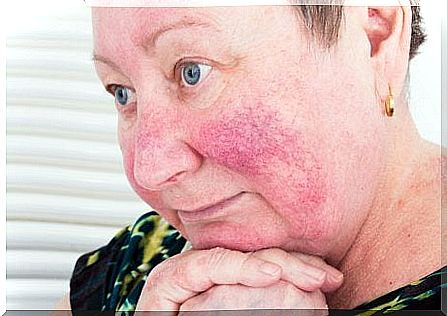
1. Alcohols
In a survey of 1066 patients by the National Rosacea Society, the results show that alcohol is an irritant in 66% of the cases studied.
For this reason, it is important to avoid alcohol: this substance dehydrates and damages the protective barrier of the skin. Alcohol can also prevent the natural regeneration of the skin and thus worsen irritation.
Alcohol is commonly found in lotions for oily or acne-prone skin and is listed as “denatured alcohol”, “SD alcohol” or “propanol”. So always check the labels of beauty products.
2. Certain exfoliating ingredients
Any exfoliation using a brush, a towel or sugar-based should be avoided in case of rosacea.
The products below are not suitable for sensitive skin, let alone people who suffer from rosacea:
- Vegetable charcoal powder
- This powder does not differentiate between dead cells and healthy skin tissue. It is therefore a very aggressive exfoliating agent, especially for people who suffer from rosacea.
- Grapefruit seed extract
- When this exfoliating agent is used, the blood vessels stay close to the surface of the facial skin, which promotes redness and contact dermatitis.
- Α-hydroxy acids or AHAs
- Although these are common exfoliating agents, they are very aggressive for sensitive skin and skin with rosacea. Among these agents stand out citric acid, lactic acid and glycolic acid.
Rest assured… There are exfoliating agents capable of removing dead cells in a delicate way, without harming the skin.
3. Perfumes and fragrances
If you are one of those people who adore products that give off a pleasant smell, then you are going to be disappointed. The fragrances found in beauty products, whether synthetic or of natural origin, tend to irritate the skin.
Still according to the publication cited above, one of the main causes of allergic dermatitis are fragrances. These substances cause more skin problems than any other ingredient. In addition, to retain their aroma, some brands add alcohol, another irritating ingredient.
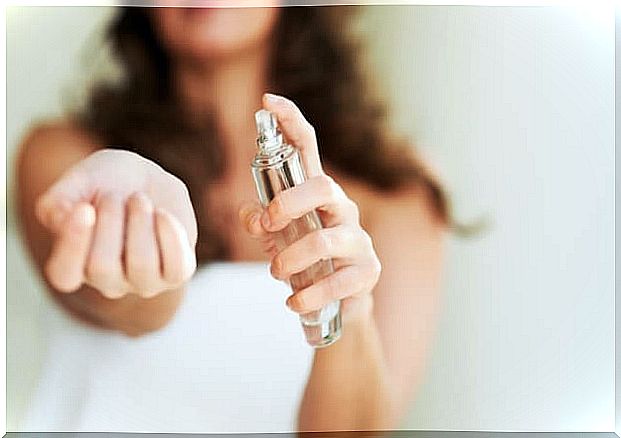
4. Stress, one of the main triggers of rosacea
Stress is one of the triggers for rosacea. It is therefore important to know and apply stress management techniques such as relaxation, yoga, deep breathing, tai chi, etc. These activities help reduce stress levels and control symptoms of this condition.
5. Sunlight
One of the main triggers for rosacea is sunlight. If you suffer from rosacea, you should use sunscreen with a sun protection factor of at least SPF 30, even when the weather is cloudy.
6. Food
The health of the gut and the health of the skin are closely linked. This study published in the British Journal of Dermatology suggests that there may be a link between certain gastrointestinal diseases and the onset of rosacea.
This is why it is advisable to limit the consumption of certain food products. Alcohol, hot dishes, hearty meals, trans fats and refined foods, among others, are some of the food products to avoid.
How do you know if you have rosacea?
If rosacea is suspected, it is necessary to consult a dermatologist. Your doctor will examine your skin and be able to determine if you have rosacea or another skin disease. They may also prescribe appropriate treatment for you.
Although rosacea is incurable, the tips you just found should help ease your symptoms.
